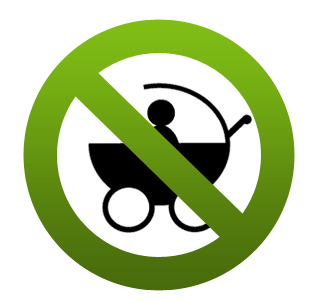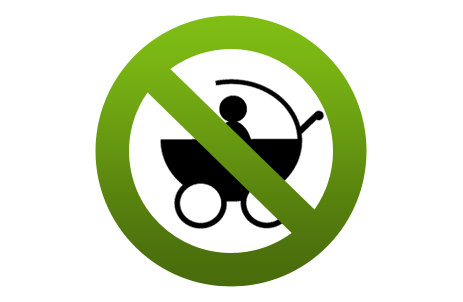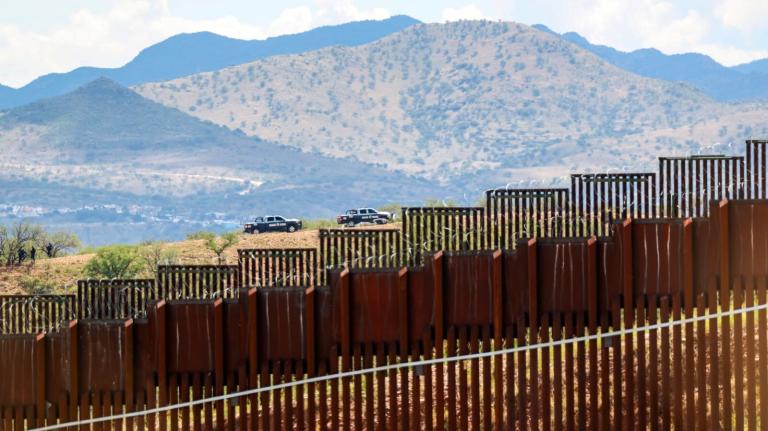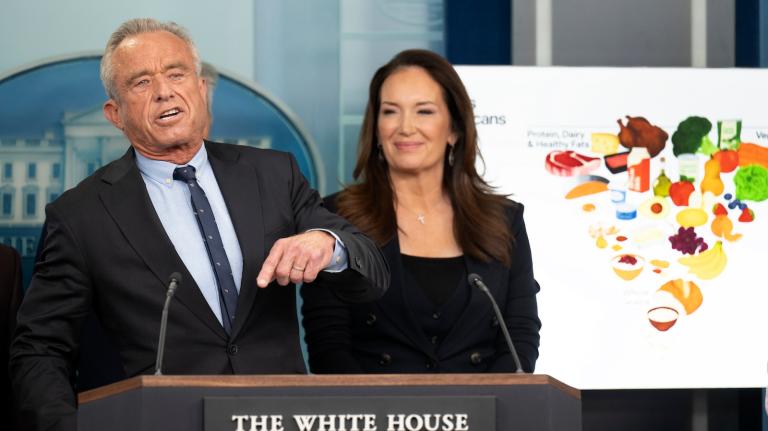 In 1969, graduating college senior Stephanie Mills made national headlines with a commencement address exclaiming that, in the face of impending ecological devastation, she was choosing to forgo parenthood. “I am terribly saddened by the fact that the most humane thing for me to do is to have no children at all,” she told her classmates.
In 1969, graduating college senior Stephanie Mills made national headlines with a commencement address exclaiming that, in the face of impending ecological devastation, she was choosing to forgo parenthood. “I am terribly saddened by the fact that the most humane thing for me to do is to have no children at all,” she told her classmates.
I come here before you today to make the same proclamation—with a twist. I am thoroughly delighted by the fact that the most humane thing for me to do is to have no children at all.
Making the green choice too often feels like a sacrifice or a hassle or an expense. In this case, it feels like a luxurious indulgence that just so happens to cost a lot less for me and weigh a lot less on the carbon-bloated atmosphere.
I call myself a GINK: green inclinations, no kids.
First, a word for you parents
Let me get this out of the way up front: I like kids—many of them, anyway. Some of my best friends, as they say, are parents. I bear no ill will to procreators, past, present, and prospective. I claim no moral or ethical high ground.
If being a parent is something you’ve longed and planned for, or already embarked upon, I respect your choice and I wish you luck. Go forth and raise happy, healthy kids. May they bring you joy and fulfillment, and may they become productive members of society who faithfully pay their Social Security taxes.
Of course, you parents and parent wannabes don’t need my encouragement—our society supports your decision overwhelmingly. OK, yes, the U.S. lacks paid family leave and universal childcare, not to mention many basic rights for same-sex couples with children—and we should remedy these shortcomings. But from the tax breaks to the discounted airline seats*, from the eager grandparents urging you on to the friends, cousins, and complete strangers who ask when the first or next kid is coming, from the “What to Expect …” empire to the proliferating mommy and daddy blogs, our culture constantly affirms your choice—in many ways, almost demands it. And, no small matter, our biology does too.
So this post isn’t for you. It’s for the childfree and childfree-curious, who don’t get a lot of encouragement in our society. Parents, keep reading if you like, but you have to promise not to tell the rest of us that we’d feel differently if we just had our own!
OK, down to business
Here’s the dirty little secret that we’re never supposed to say in mixed company: There are a lot of perks to childfree living, not to mention a lot of green good that comes from bringing fewer beings onto a polluted and crowded planet.
Yes, as a childfree person, I’ll miss out on a lot: The miracle of childbirth (though, truth be told, I don’t feel so bad about skipping that one). The hilariously perceptive things that only kids say. A respectable excuse for rereading the Harry Potter series. The hope that my kid will be smarter and cooler and better looking than I ever was. More boisterous holiday celebrations. Someone to carry on the family name (assuming I won the arm-wrestling match with my partner over whose name the kid would actually get). Maybe even the satisfaction of helping a child grow into a well-educated, well-adjusted adult, and the peace of mind of knowing there’s someone to take care of me in my old age.
But parents miss out on a lot too (as some will be the first to tell you): Time and emotional energy to invest in friendships and a romantic partnership. Space to focus on a career or education or avocation. Uninterrupted “grown-up” conversations. Travel that’s truly impulsive or leisurely or adventurous (and never involves zoos). Unpremeditated Saturday nights on the town and Sunday brunches out. Opportunities for political or community engagement. Stretches of quiet for reading or writing or relaxing. A non-child-proofed, non-toy-strewn, non-goldfish-cracker-crumb-riddled home. Eight peaceful, uninterrupted hours of sleep a night. All without any guilt that one should be spending more quality time with the kid.
A childfree life also means a lot more financial freedom. How expensive are kids? Try $291,570 for a child born in 2008 to parents bringing home between $57,000 and $98,000 a year, according to figures from the USDA. That’s for the first 18 years, so it doesn’t include college. If you make more, you’re likely to spend more. Couples bringing in upwards of $98,000 a year can expect to spend an average of $483,750 on a child’s first 18 years. (Dig into the numbers yourself [PDF] for all the caveats and conditions.)
Opting out of childrearing might leave you richer in happiness too, as Harvard psychology professor and happiness expert Daniel Gilbert recently told NPR:
[I]t probably is true that without children, your marriage might be happier in the sense that you would report more daily satisfaction. People are surprised to find this, because they value and love their children above all things. How can my children not be a source of great happiness?
Well, one reason is that although children are a source of happiness, they tend to crowd out other sources of happiness. So people who have a first child often find in the first year or two that they’re not doing many of the other things that used to make them happy. They don’t go to the movies or the theater. They don’t go out with their friends. They don’t make love with their spouse.
In his 2006 book Stumbling on Happiness, Gilbert offers more on this topic:
Careful studies of how women feel as they go about their daily activities show that they are less happy when taking care of their children than when eating, exercising, shopping, napping, or watching television. Indeed looking after the kids appears to be only slightly more pleasant than doing housework.
None of this should surprise us. Every parent knows that children are a lot of work — a lot of really hard work — and although parenting has many rewarding moments, the vast majority of its moments involve dull and selfless service to people who will take decades to become even begrudgingly grateful for what we are doing.
Even firebrand valedictorian Stephanie Mills, who initially considered her decision not to have children a sacrifice, now writes:
… it proved to be a good personal choice. I am cussedly independent and I love my solitude and freedom. … Other women, I know, have been able to combine demanding vocations with motherhood. Given my particular nature, the responsibility and distraction of childrearing most likely would have prevented me from pursuing my work as a writer, which has been immensely rewarding …
Which isn’t to say she never wonders about her decision:
Now that I’m old enough to be a grandmother, I sometimes wish that I had a granddaughter to commune with, but I am friends with some spectacular young people and can learn from them as well as pass along whatever wisdom I’ve developed. That will have to do.
Ultimately, as Mills suggests, life is a series of tradeoffs. By choosing not to have kids, some doors are closed to you, but others are open—and they don’t have sticky doorknobs.
The green angle
Beyond the undisturbed sleep and the gleaming doorknobs, consider the environmental benefits to the childfree life.
We’re on track to hit a global population of 7 billion people next year or the year after—3 billion more than when Mills got all riled up four decades ago. We’ve spewed enough greenhouse gases into the atmosphere to push it past the safe point, which many climate scientists agree is 350 parts carbon dioxide per million; we’re already at about 390 and rising fast. And Americans are among the most carbon-intensive people on earth. The average American generates about 66 times more CO2 each year than the average Bangladeshi—20 tons versus 0.3 tons.
If you consider not just the carbon impact of your own kids but of your kids’ kids and so on, the numbers get even starker. According to a 2009 study in Global Environmental Change [PDF] that took into account the long-term impact of Americans’ descendants, each child adds an estimated 9,441 metric tons of CO2 to a parent’s carbon legacy—that’s about 5.7 times his or her direct lifetime emissions.
“Many people are unaware of the power of exponential population growth,” said study coauthor Paul Murtaugh, a professor of statistics at Oregon State University. “Future growth amplifies the consequences of people’s reproductive choices today, the same way that compound interest amplifies a bank balance.” (To take an extreme example, compare childfree me with Yitta Schwartz of Monroe, N.Y., who died this year at the age of 93, leaving behind an estimated 2,000 descendants.)
A person who cares about preserving a livable environment has lots of options for doing her bit, and you’ve heard all about them: live in an energy-efficient home in a walkable neighborhood; bike or walk or take public transit when possible; drive an efficient car if you drive one at all; fly less; go veg; buy organic and local; limit purchases of consumer goods; switch to CFLs or LEDs; slay your vampires; offset carbon emissions; vote for climate-concerned candidates, and hold them accountable for their campaign promises.
But even in aggregate, all of these moves don’t come close to the impact of not bringing new human beings—particularly new Americans—into the world.
Here’s a simple truth: For an average person like me—someone who doesn’t have the ability of an Al Gore to reach millions, or of a Nancy Pelosi to advance (if not actually enact) landmark environmental legislation, or of a Van Jones to inspire (and piss off) whole new audiences—the single most meaningful contribution I can make to a cleaner, greener world is to not have children.
Just say it
Why does it feel almost audacious to articulate all of this?
Those of us who are childfree by choice are in the minority, but if you judged by the public discourse about our lifestyle, you’d think we were practically nonexistent.
Parents talk all the time about the delights and challenges of raising kids, to other parents and to all the rest of us, and I don’t begrudge them that.
We childfree people rarely discuss in public the upsides and downsides of life without kids—and that’s what needs to change.
If you’re intentionally childfree, how many times have you been asked, “So, when are you going to have children?” and mumbled a less-than-candid reply: “Oh, I’m not sure,” or “Well, it just might not happen for us,” or “Maybe someday …” when what you really mean is “Never.”
Childfree people tread too gingerly around parents, as though we might wound their feelings if we told the truth about why we’ve made different decisions than they have. But we insult them by thinking they’re so fragile or insecure about their family choices—and we shortchange ourselves and society at large by not speaking openly about the legitimate choice to not have a child.
What would happen if you answered the kid question honestly? “No, I’m happy with my life as is,” or “A child doesn’t fit into our life plans,” or “Kids aren’t really my thing,” or “I think there are plenty of people on the planet already.”
If we said what we really think, I suspect we would actually find a lot of kindred or at least sympathetic spirits out there, GINKs and otherwise. We might have some refreshingly frank and gratifying conversations with the parents in our lives. And we could give those who are undecided about parenthood the understanding that the choice to be childfree is completely valid, and not completely lonely.
Little bundles of (j)oy aren’t for everyone—and it’s time we said so out loud.
—–
Become a fan of GINK on Facebook, follow GINK on Twitter, and check out the GINK blog.
Read more about population and the childfree option:
- Childfree messages in Sex and the City 2 and Eat, Pray, Love
- Pundits criticize Elena Kagan for being childfree
- How green are the ‘childless by choice’?
- Women’s rights are the right way to approach the population issue
- Nearly a fifth of American women skip childbearing
- Want to join the Voluntary Human Extinction Movement?
- And still more about population




